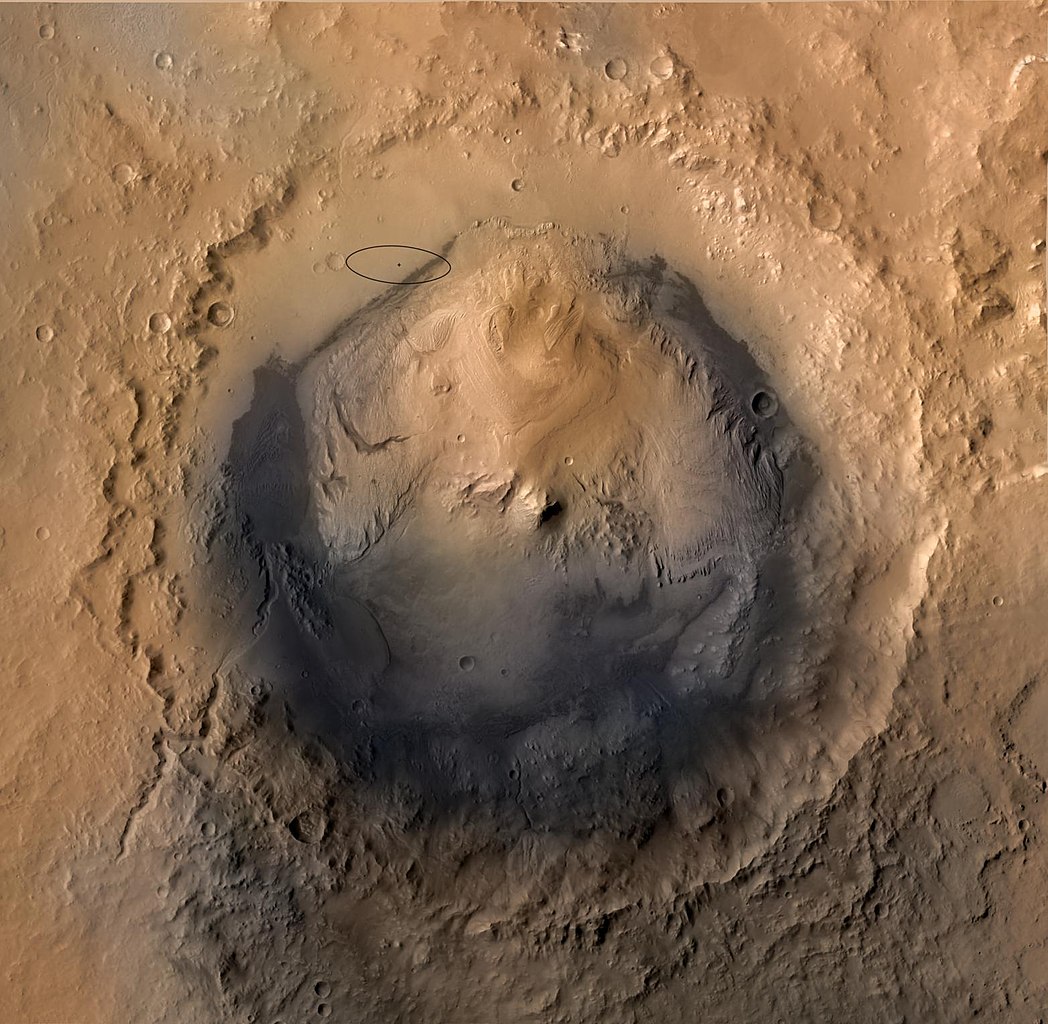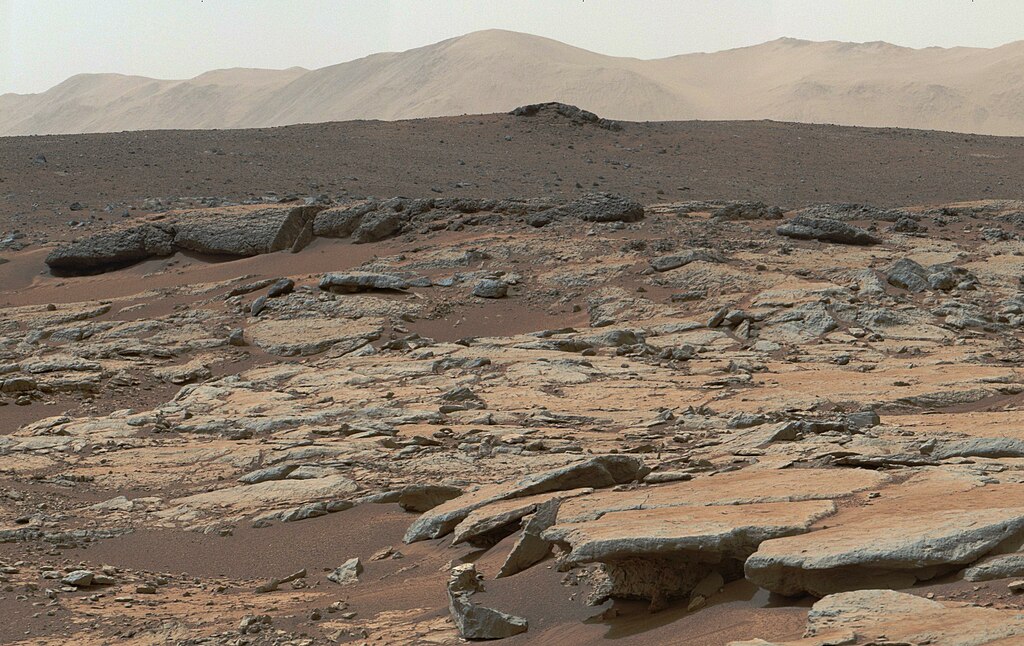It is believed that ancient Mars was a world filled with water. It's easy to get cold, with frosts and floods, and it's not a tropical paradise.
It may also have a denser atmosphere, and the composition of this particular atmosphere has now been called into question. the IFLScience According to him, the chemical elements indicate that it may have been more similar to Earth than previously thought.
Image of Gale Crater taken by the Curiosity spacecraft. NASA/JPL-Caltech/MSSS/Wikimedia
The findings come from NASA's Curiosity rover, which is investigating Gale Crater, the site of an ancient lake.
Researchers reported higher-than-expected levels of manganese oxide in sedimentary rocks. All of the scenarios explored by the team require a strong oxidizing environment. Study A Journal of Geophysical Research: Planets It can be read in the magazine entitled
Was the atmosphere of ancient Mars richer in oxygen? If so, how?
Manganese oxide is difficult to form on Mars, so we did not expect to find it in such high concentrations in coastal sediments
said lead author Patrick Gasda of the Space Research and Applications Group at Los Alamos National Laboratory.
“On Earth, these types of deposits occur all the time due to high oxygen levels in our atmosphere, produced by photosynthetic life and microbes that catalyze manganese oxidation reactions.”
“We have no evidence that life ever existed on Mars, and the mechanism by which oxygen was produced in the planet's ancient atmosphere is unclear, so how manganese oxide formed and was concentrated here is a real mystery.”
“These results point to larger processes in the Martian atmosphere or surface waters, and show that more work needs to be done to understand Martian oxidation.”

NASA's Curiosity spacecraft. NASA/JPL-Caltech/Wikimedia
Obviously, we cannot assume that oxygen was created by life, and that this chemical compound was formed because of oxygen and then simply disappeared.
But something was oxidizing the manganese and iron Curiosity found, so the process must have occurred at some point. Even if there was no life form in it.
It is possible that these compounds were simply formed on the lake shore from lake water. They may have formed from groundwater moving in the sand, or they may have been modified by groundwater.

In June 2012, the target area for NASA's Mars Science Laboratory mission was Gale Crater, marked by an ellipse in this image. The ellipse is about 20 km long and 7 km wide. NASA/JPL-Caltech/ESA/DLR/FO Berlin/MSSS/Wikimedia
But even then, these metals need to be oxidized. At least that's what Curiosity's ChemCam observations reveal.
“The areas around Gale Lake, revealed by ancient rocks, offer a glimpse of a habitable environment that is strikingly similar to places on Earth today,” explained lead researcher Nina Lanza.
“Manganese minerals are common on Earth in the shallow, oxidized waters of lake shores, and it is remarkable to find such distinctive features on ancient Mars.”
Worth reading:












































